Improving the business environment to attract sustainable FDI
According to data from the General Statistics Office, Ministry of Finance , foreign direct investment (FDI) implemented in Vietnam in the first 10 months of 2025 is estimated at 21.3 billion USD, up 8.8% over the same period last year. This is the highest amount of foreign direct investment implemented in 10 months in the past 5 years, demonstrating foreign enterprises' confidence in Vietnam's investment policies and environment.
In addition, the national brand value increased to 507 billion USD, ranking 32nd in the world, clearly demonstrating the prestige and increasingly solid position of Vietnam on the global economic map. This achievement not only reflects the attractiveness of the Vietnamese economy, but also clearly demonstrates the relentless efforts in improving the investment and business environment in Vietnam.
The Vietnamese government always listens to and accompanies foreign investors. On the afternoon of November 10, the annual Vietnam Business Forum was held to listen to opinions and solutions from enterprises and foreign investment associations in Vietnam, to increase competitiveness and increase the attractiveness of the investment environment to attract high-quality FDI capital flows.
At the forum, FDI business associations said that although the number of investment projects in Vietnam at the end of the year did not show any sudden changes, many businesses have now come to Vietnam to seek opportunities in high-tech fields.
Mr. Hong Sun - Honorary Chairman of the Korean Chamber of Commerce in Vietnam (KoCham) said: "Some businesses are approaching new policies in Vietnam in the fields of semiconductor chips and AI technology. After the success of some of those businesses, second and third investors will continue to pay attention and invest in Vietnam."
Mr. Wakabayashi Koichi - Chairman of the Japan Chamber of Commerce and Industry in Vietnam (JCCI) shared: "Japanese enterprises have shifted their investment from labor-intensive to industrial value-added, human resource and infrastructure development. We encourage the development of high value-added industries, including research and development (R&D), capacity building and energy transition projects, to demonstrate our commitment to a green, competitive and future-ready Vietnam."
Foreign enterprises also highly appreciated the implementation of Vietnam's two-tier government apparatus since July 1, which will help enterprises shorten administrative procedures to implement investment projects. However, investors recommended that there should be clear guidelines and roadmaps to narrow the gap between the central and local levels, ensuring consistency in governance nationwide.
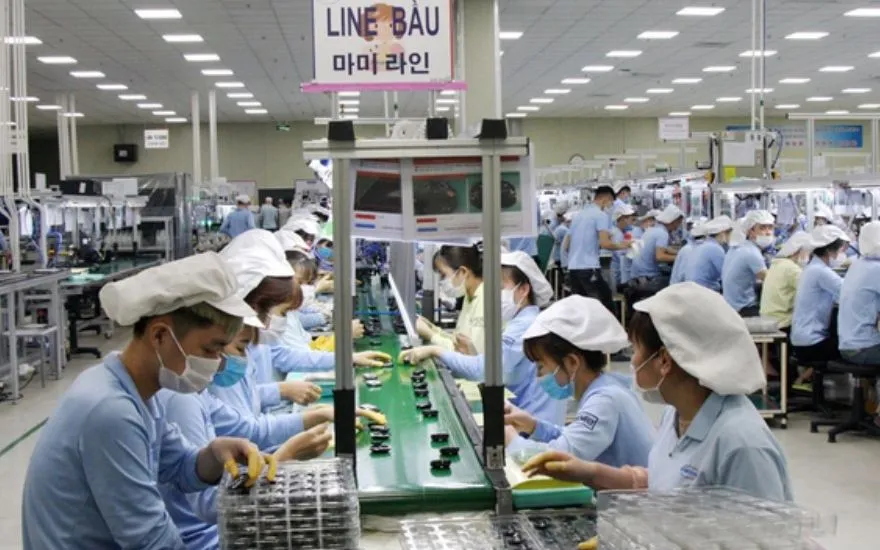
Foreign direct investment (FDI) realized in Vietnam in the first 10 months of 2025 is estimated at 21.3 billion USD, up 8.8% over the same period last year. Illustrative photo.
Mr. Bruno Jaspaert - Chairman of the European Chamber of Commerce in Vietnam (EuroCham) commented: "Issues such as VAT refunds, customs clearance procedures, land use rights, construction permits and intellectual property protection are also key factors in determining the ability to operate, expand and build investor confidence. We recognize and appreciate Vietnam's strong reform speed in recent times. However, some laws and regulations are issued so quickly that even the most dynamic foreign enterprises have difficulty updating and complying."
International financial institutions also assess Vietnam’s economic prospects as very positive in the context of the volatile world economy, especially after the Vietnamese stock market was upgraded to the secondary emerging market group. This is not only a change in classification, but also opens the door to attract more international capital flows into sustainable development projects.
Proposing solutions to attract FDI investment in sustainable projects
To achieve the target of double-digit growth in the coming years, growth in attracting foreign direct investment is one of the three important pillars. In order for Vietnam to become a destination for high-tech investment projects, clean energy, and sustainable production following the global greening trend, FDI enterprises recommend that Vietnam must resolve existing barriers such as human resource quality and immigration policies.
Mr. Colin Blackwell - Chairman of VBF Human Resources Group said: "It is important to train high-tech skills and the ability to use artificial intelligence (AI). Currently, there is also good cooperation between the education sector and businesses in training technical and engineering skills. However, the private sector needs to promote more working skills, soft skills, management skills, creativity, not just technical skills."
Mr. David John Whitehead - Chairman of Marvin Group commented: "We appreciate and recommend that the Vietnamese Government organize more dialogue forums - where international organizations and the Vietnamese Government can listen to direct opinions, remove barriers to cooperate closely in a comprehensive strategic partnership. This will bring great benefits to both international investors and the Vietnamese Government, helping each other develop more sustainably and prosperously."
"Vietnam should consider loosening the temporary residence card issuance regime for foreign investors. Foreign investors who invest for a long time in Vietnam can be granted visas, 15-year temporary residence cards or even permanent residence cards," Mr. Hong Sun - Honorary Chairman of the Korean Chamber of Commerce in Vietnam (KoCham) proposed.
Administrative reform - the key to attracting investment capital for Ho Chi Minh City
Words go hand in hand with actions, quickly implementing commitments is probably the secret that helps Ho Chi Minh City maintain FDI attraction activities in recent times, in the context of many economic fluctuations. In the past 10 months, Ho Chi Minh City has attracted 7.23 billion USD of FDI, an increase of 28.67% over the same period. The city has committed to and implemented a 30% reduction in time and costs for administrative procedures, considering this as a lever to attract new FDI capital flows.
In the past 10 months alone, Ho Chi Minh City has attracted nearly 1,500 new foreign-invested projects. The concerns of most FDI enterprises, if any, are still concerns about lengthy or cumbersome administrative procedures, slow investment licensing times, and customs procedures that have not been standardized according to international practices.
Mr. Long Yun Hai - Chairman of Caifutong Group said: "After the investment policy is approved, we hope that the process of transferring capital from abroad to the enterprise's account in Vietnam will also be carried out smoothly and promptly."
"The biggest problem that American businesses face in Vietnam is too many administrative procedures. Therefore, when Ho Chi Minh City cuts 30% of administrative procedures, this is a huge step forward and right on target," said Mr. Travis Mitchell - Executive Director of the American Chamber of Commerce in Vietnam (AmCham).

To welcome the new wave of FDI, Ho Chi Minh City is promoting infrastructure development and improving the business environment.
To welcome the new wave of FDI, Ho Chi Minh City is promoting infrastructure development and improving the business environment. The private sector is identified as an important growth driver of the City with the goal of contributing 55-58% of the city's GRDP by 2030. However, the major bottlenecks currently lie in the specific institutions and mechanisms, which need to be resolved promptly.
Dr. Vu Thanh Tu Anh - School of Public Policy and Management, Fulbright University Vietnam shared: "Ho Chi Minh City used to be a leader in the country, but in the recent period, new initiatives have begun to be lacking. So how can Ho Chi Minh City regain its spirit of openness and innovation?"
Restructuring development space according to the "multipolar - integrated - super-connected" mindset, Ho Chi Minh City is oriented to develop according to the model of "1 space - 3 regions - 1 special zone".
The old core area of Ho Chi Minh City is the financial and high-tech capital. To attract new investments into these spaces, Ho Chi Minh City is cutting 30% of administrative procedures.
Mr. Nguyen Van Duoc - Chairman of Ho Chi Minh City People's Committee informed: "Reducing administrative procedures in 3 factors: first is cost, second is time, third is the minimum procedural and document components by 30%. Please trust us so that we can reach the finish line successfully".
Up to this point, Ho Chi Minh City has cut 435 administrative procedures, simplified 441 procedures, 100% of administrative procedures have completed internal processes and been publicly announced.
These efforts demonstrate that administrative reform is not just about shortening procedures or cutting costs, but also about maintaining commitments and accepting breakthroughs in thinking, thereby unleashing resources for the entire socio-economic system.
Continue strong reforms to attract FDI capital
Speaking at the VBF 2025 forum on the afternoon of November 10, Prime Minister Pham Minh Chinh requested ministries and branches to continue to strongly reform administrative procedures, shifting from pre-inspection to post-inspection, reducing time and costs for businesses; promoting public-private partnership (PPP) to lead state resources, thereby activating social resources, including businesses.
At the forum, the Prime Minister said that in the coming time, the Government will build a national one-stop investment portal. Along with that, it will develop green infrastructure, digital infrastructure, and connected national data as a foundation for smart management and administration.
Prime Minister Pham Minh Chinh emphasized: "We always listen and understand your difficulties. This year, I also have dialogues with all business communities of countries in Vietnam. Then businesses need to meet, we will meet and we will operate on the basis of data that must be "correct, sufficient, clean, alive" and must be combined with each other. Connecting the State and private sectors, connecting the local and central sectors, connecting ministries and branches together to form a national database with the motto of the State creating, businesses pioneering, public and private sectors accompanying each other, the country is rich and strong, the people are happy, and businessmen benefit."
Regarding the key tasks and solutions in the coming time, the Prime Minister stated that, first of all, Vietnam will continue to maintain political stability and social order and safety, which is the basis for stabilizing policies for rapid and sustainable development; stability for development, development for stability, ensuring security, safety and security for the people.
Along with that, promote three strategic breakthroughs in institutions, human resources and infrastructure with the spirit of "open institutions, transparent infrastructure, smart human resources and governance".
In addition, promote the connection of Vietnam's economy with countries in the region and the world; between Vietnamese enterprises and FDI enterprises and enterprises in the world; connect production chains, supply chains, global value chains. The Prime Minister emphasized the spirit of "unity brings strength, cooperation brings benefits, dialogue strengthens trust".
Source: https://vtv.vn/viet-nam-cai-thien-moi-truong-dau-tu-thu-hut-fdi-ben-vung-100251111063153601.htm


![[Photo] Prime Minister Pham Minh Chinh chairs a meeting on housing policy and the real estate market.](https://vphoto.vietnam.vn/thumb/1200x675/vietnam/resource/IMAGE/2025/11/11/1762838719858_dsc-2107-jpg.webp)



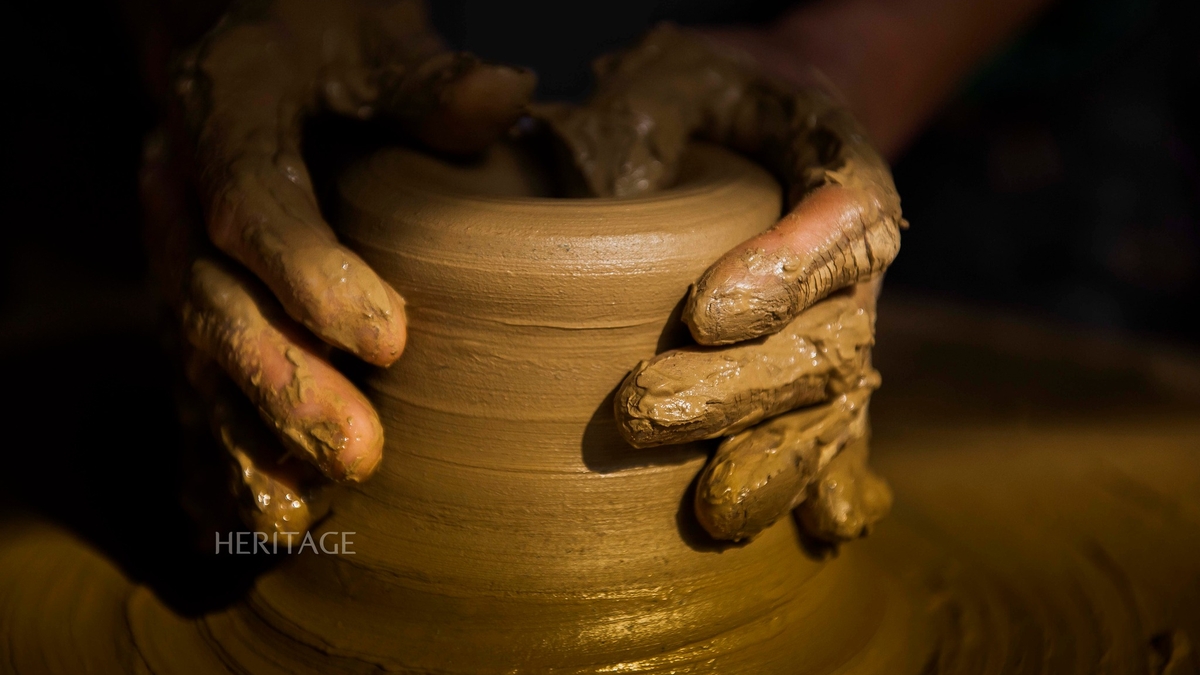

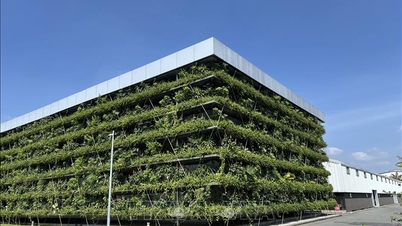

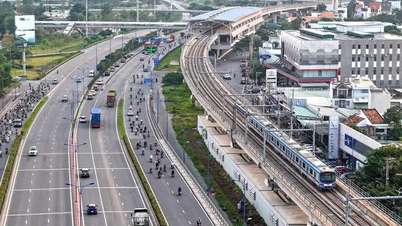

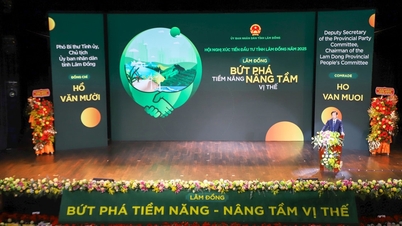



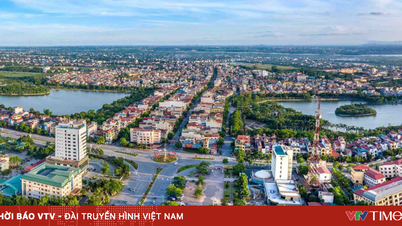


![Oil and Gas Industry - Clean Fuels for Green Transportation: [Part 2] Solid Foundation](https://vphoto.vietnam.vn/thumb/402x226/vietnam/resource/IMAGE/2025/11/11/1762841724562_h3-tau-maran-gas-achilles-tien-vao-kho-cang-lng-thi-vai-danh-dau-su-kien-dau-tien-va-quan-trong-nhat-trong-lo-trinh-chuyen-doi-nang-luong-xanh-cua-pv-gas-141854_697-160831-200134_900-131226.jpeg)









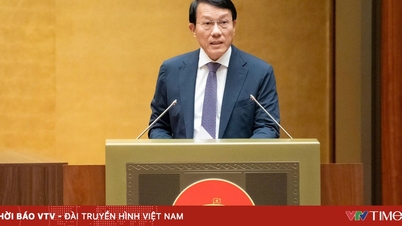


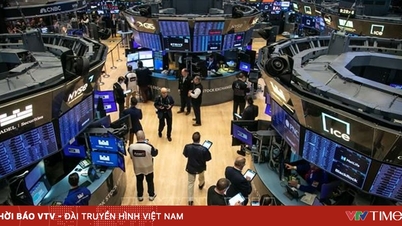





































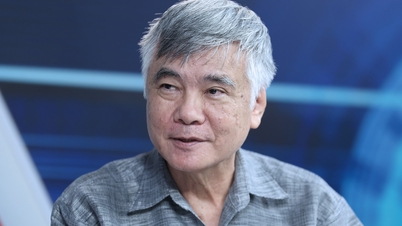






























![Dong Nai OCOP transformation: [Article 4] Reaching national standard products](https://vphoto.vietnam.vn/thumb/402x226/vietnam/resource/IMAGE/2025/11/11/1762825820379_4702-cac-san-pham-trai-cay-chung-nhan-ocop-nongnghiep-174649.jpeg)


![Dong Nai OCOP transition: [Article 3] Linking tourism with OCOP product consumption](https://vphoto.vietnam.vn/thumb/402x226/vietnam/resource/IMAGE/2025/11/10/1762739199309_1324-2740-7_n-162543_981.jpeg)






Comment (0)